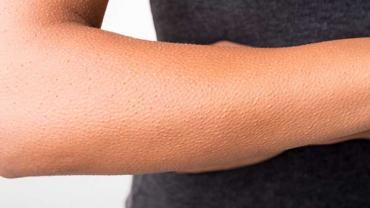
It’s not uncommon to hear someone announce that they always feel cold. While some of us may think cold sensitivity is no more than a genetic predisposition or a result of being too thin, it could actually be a sign of a deeper health problem.
Body temperature and thermoregulation isn’t a subjective feeling; it is one of the most important functions of the central nervous system involving complex pathways that rely on the accuracy of peripheral sensor nerves, communication between the peripheral and central nervous system as well as the central nervous system and other organ systems, and correct thermoregulatory responses of organ systems. Multiple feedback and feed-forward systems are involved in thermoregulation and responsible for initiating both physiological and behavioral responses.
The body’s thermoregulatory responses can change not only in response to external stimuli (such as cold or hot weather) but also in response to internal stimuli. For example, the presence of an infection, stages of sleep, and energy and fluid homeostasis can all affect the body’s thermoregulatory response, independent of external temperatures.
Therefore, when someone feels chronically cold, it may be a sign of an internal problem rather than uncomfortably cold external temperatures.
Sleep Deprivation
Many of us have experienced the feeling of “being cold” when we are tired. Chronically feeling cold can be an indicator of sleep deprivation – an occurrence that is far too common with our modern lifestyles. Sleep patterns are associated with fluctuations in skin temperature gradients and prolonged sleep deprivation has been linked to progressively lower core body temperatures, even in the presence of increased food and energy intake (which generally raises core body temperature). In a human study seeking to determine the effects of sleep deprivation on skin temperature gradients measured over the entire human body, it was found that sleep deprivation created a significant dissociation between skin temperature gradients, increasing the activation of heat loss mechanisms in the lower extremities while stopping heat loss activation in the upper extremities. It was found that sleep deprivation disrupts the coordinated control of skin blood flow of the hands and feet by the sympathetic nervous system.
Anorexia Nervosa
Many eating disorders such as anorexia nervosa are not discovered except through unexplained symptoms that are recognizable only to the experienced practitioner. Feeling cold most of the time is one such sign of a potential eating disorder. As the body mass index decreases due to self-induced starvation, endocrine systems are disrupted and one of the primary outcomes is seen in the body’s thermoregulatory system and skin surface temperatures. In a study comparing healthy young women to those diagnosed with anorexia nervosa, the mean body surface temperature was assessed at various locations. In anorexic women the mean temperatures of the abdomen, lower back and thighs were significantly higher and the mean temperatures of the hands were significantly lower than their healthy counterparts. The mean temperature of the hands, specifically, was directly associated with reduced anthropomorphic parameters.
Low Thyroid Function
Increased cold intolerance is a typical sign of either classic, subclinical, or secondary hypothyroidism. The basal metabolic rate is influenced in-part by the levels of thyroid hormones. Low levels of thyroid hormones reduce the rate of ATP production and consumption. Thyroid hormones are also partly responsible for the development and function of the thermogenic brown adipose tissue. On the other hand, in cold conditions, brown adipose tissue helps convert inactive thyroxine (T4) into active triiodothyronine (T3). Further, the production of mitochondria is fostered by high levels of T3, so low levels disrupt energy production. In a prospective observational study of 33 patients with subclinical or classic hypothyroidism, restoring normal levels of thyroid hormones resulted in significant improvement in their response to cold temperatures.
Hypoglycemia
Blood sugar also plays a pivotal role in thermoregulation and dysregulated blood sugars can lead to both cold and heat intolerance. Hypoglycemia (either as an independent condition or in a diabetic state) decreases body temperature, leaving the feeling of being cold. The body’s response of lowering its temperature in response to a hypoglycemic state is independent of insulin levels as was shown in a study of 45 healthy men given various glycemic clamps and insulin infusions while measuring body temperature.
The feeling of being chronically cold or chilled could be a result of something as innocuous as being a female (who are known for having a lower body temperature as was discussed in a separate blog), having a lower body mass index, or simply spending your days in an air-conditioned building; however, before writing it off, consider the fact that cold intolerance could be subtly pointing to a deeper health concern such as a deficiency in sleep, food energy, thyroid hormones, or blood glucose.